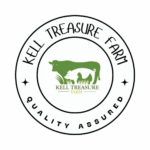INTRODUCTION
Organic chicken has become increasingly popular among health-conscious consumers. This comprehensive guide explores what makes organic chicken different, its benefits, how to identify it, and why choosing organic chicken can be a healthier and more ethical choice.
Organic Chicken: A Comprehensive Guide
What Is Organic Chicken?
Organic chicken refers to poultry that is raised according to specific organic farming practices. These practices typically include access to the outdoors, organic feed, and prohibitions on antibiotics and synthetic hormones. Understanding these criteria helps consumers make informed choices about their poultry purchases.
Benefits of Organic Chicken
Nutritional Benefits
Organic chicken is often considered healthier due to its lack of exposure to antibiotics and synthetic additives. Studies suggest that organic chicken may have higher levels of certain nutrients, including omega-3 fatty acids and antioxidants, contributing to better overall health.
Environmental Benefits
Organic farming practices are designed to be more sustainable and environmentally friendly. These practices reduce the use of synthetic chemicals and promote biodiversity. Additionally, organic farms often implement better waste management practices, reducing their environmental footprint.
Ethical Considerations
Organic chicken farming emphasizes animal welfare. Chickens are given more space to roam and are allowed to engage in natural behaviors. This humane treatment leads to better quality of life for the chickens and aligns with ethical consumer standards.
How to Identify Organic Chicken
Labels and Certifications
When shopping for organic chicken, look for labels such as USDA Organic or other recognised organic certifications. These labels ensure that the chicken meets strict organic standards, including organic feed and humane treatment.
Visual and Taste Differences
Organic chicken may have a slightly different appearance compared to conventional chicken, often featuring firmer texture and a richer flavor. These differences can enhance the culinary experience, making meals more enjoyable and nutritious.
Buying and Storing Organic Chicken
Where to Buy?
Organic chicken is widely available at grocery stores, specialty health food stores, and farmers markets. Online retailers also offer convenient delivery options. Choosing reputable sources ensures you get high-quality organic poultry.
Storage Tips
Proper storage is essential to maintain the freshness and safety of organic chicken. Keep it refrigerated and use it within the recommended timeframe. Freezing is also an option for longer storage, ensuring the chicken retains its quality.
The Cost of Organic Chicken
Organic chicken typically costs more than conventional chicken. This higher price reflects the more labor-intensive and sustainable farming practices required. While it may be more expensive, many consumers find the health, environmental, and ethical benefits worth the extra cost.
Supporting Organic Chicken Farming
Making Informed Choices
Consumers play a vital role in supporting organic farming.By choosing organic chicken, you support farmers who prioritise sustainable and humane practices. This demand can drive positive changes in the agricultural industry, encouraging more farmers to adopt organic methods.
Advocacy and Awareness
Promoting awareness about the benefits of organic chicken and the importance of sustainable farming is crucial. Support advocacy groups that work towards better farming practices and animal welfare. Educating others about these issues can lead to more informed and ethical consumer choices.
Conclusion
Choosing organic chicken offers numerous benefits, from improved nutrition to better animal welfare and environmental sustainability. By understanding what makes organic chicken different and making informed purchasing decisions, you can contribute to a healthier and more ethical food system. Make the switch to organic chicken today and enjoy the positive impact on your health and the planet.
